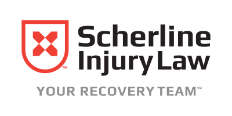Most expecting moms conduct a lot of research into how to raise and care for a newborn baby. They want to keep their infants healthy and safe, especially during those first few scary months. However, it is also wise to put some effort into protecting your own health as well, and a good place to start is by researching Pennsylvania hospitals.
Along with looking for a good record of patient safety, expecting families should put some effort into finding out the rate at which a hospital performs cesarean sections (C-sections). This is important because many C-sections are unnecessary and could put the mother’s life and health at risk. In many cases, unnecessary C-sections are examples of medical malpractice that may occur during labor and delivery.
Of course, some C-sections are 100 percent necessary. If the mother is suffering from a health condition such as diabetes, a C-section may be the safest delivery method. In another example, if an emergency like placenta previa (blockage of the cervix) occurs, a cesarean could save the mother’s life.
Even though most pregnancies are at a low risk of complications, many hospitals still perform delivery by way of a C-section. According to a doctor with Harvard Medical School, unneeded C-sections might be the cause of “up to 20,000 major surgical complications a year,” many of them putting the mother’s life at risk. For example, some cesareans lead to sepsis in the mother, which is a life-threatening condition.
A good piece of advice for expecting parents who want to avoid unnecessary C-sections is to research your hospital and to make it clear to the staff that you do not want a cesarean unless it is medically necessary. If injury or death has already occurred due to medical malpractice in the delivery room, please consider talking about your case with a legal professional.
Source: Consumer Reports, “Your Biggest C-Section Risk May Be Your Hospital,” Tara Haelle, accessed May 30, 2018





